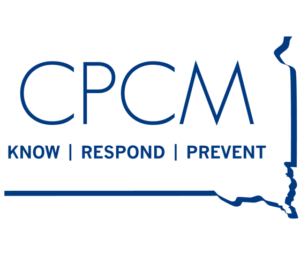Fatherhood Training Series
Training series on fatherhood. Topics include the impact of involved fathers, co-parenting techniques and strategies, father involvement in maternal and infant health, family resilience, diversity of fatherhood experiences across cultures, and impact of policies on father engagement. Presenters vary.
Child & Adult Advocacy Studies Training
This 5-hour training provides school personnel with knowledge for working in school multidisciplinary teams and discussion on the perceived barriers to implementing trauma-informed approaches. Training participants will increase knowledge of mandatory reporting, youth suicide prevention, multidisciplinary approaches, and trauma-informed interventions. Presented by Kelly Bass and Shana Cerny, University of South Dakota.

